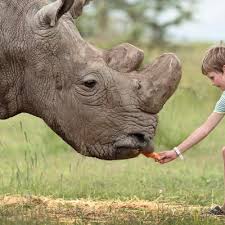The Importance of Protecting Wildlife
Wildlife plays a crucial role in maintaining the delicate balance of our planet’s ecosystems. From the tiniest insects to the largest mammals, every species contributes to the intricate web of life that sustains us all. However, human activities such as deforestation, pollution, and poaching have put many species at risk of extinction. It is essential that we take action to protect wildlife and preserve biodiversity for future generations.
Preserving Biodiversity
One of the main reasons for protecting wildlife is to preserve biodiversity. Biodiversity refers to the variety of life forms on Earth, including plants, animals, and microorganisms. A diverse ecosystem is more resilient to environmental changes and better able to provide essential services such as clean air, water, and food. By protecting wildlife habitats and preventing species loss, we can help maintain a healthy and balanced environment.
Ecosystem Services
Wildlife also provides important ecosystem services that benefit humans. For example, bees and other pollinators are essential for crop production, while predators help control pest populations. Wetlands filter pollutants from water, and forests regulate climate by absorbing carbon dioxide. By protecting wildlife, we ensure that these vital ecosystem services continue to support our well-being.
Ethical Considerations
Each species has intrinsic value and a right to exist independent of its usefulness to humans. As stewards of the planet, it is our moral responsibility to protect wildlife from harm and prevent unnecessary suffering. By respecting the lives of all creatures, we demonstrate compassion and empathy towards other living beings.
Sustainable Practices
To protect wildlife effectively, we must adopt sustainable practices in our daily lives. This includes reducing our carbon footprint, supporting conservation efforts, and advocating for stronger environmental policies. By making conscious choices that prioritize the well-being of wildlife, we can contribute to a healthier planet for future generations.
Get Involved
There are many ways you can help protect wildlife in your community and beyond. Support local conservation organizations, participate in habitat restoration projects, or volunteer at wildlife sanctuaries. Educate others about the importance of preserving biodiversity and advocate for policies that safeguard endangered species. Together, we can make a difference in ensuring a thriving future for all living creatures.
In conclusion, protecting wildlife is not just about saving individual species; it is about safeguarding the interconnected web of life that sustains us all. By valuing and preserving biodiversity, we secure a healthier planet for ourselves and future generations to enjoy.
Six Essential Tips for Protecting Wildlife and Preserving Natural Habitats
- Avoid littering to prevent harm to wildlife
- Respect wildlife habitats and do not disturb them
- Do not feed wild animals as it can disrupt their natural behavior
- Support conservation efforts and wildlife protection organizations
- Reduce the use of single-use plastics to prevent pollution in ecosystems
- Educate others about the importance of protecting wildlife
Avoid littering to prevent harm to wildlife
Avoiding littering is a simple yet powerful way to protect wildlife and their habitats. Discarded trash can pose serious threats to animals, from entanglement in plastic debris to ingestion of harmful materials. By properly disposing of waste and reducing our environmental footprint, we can help prevent unnecessary harm to wildlife and ensure a cleaner, safer environment for all living beings.
Respect wildlife habitats and do not disturb them
Respecting wildlife habitats and refraining from disturbing them is essential for the well-being of countless species. These habitats provide crucial resources such as food, shelter, and breeding grounds for wildlife to thrive. By minimizing human interference, we allow animals to carry out their natural behaviors undisturbed, ensuring their survival and the integrity of the ecosystem. It is our responsibility to tread lightly and show reverence for these delicate environments to protect the diverse array of life that depends on them.
Do not feed wild animals as it can disrupt their natural behavior
Feeding wild animals may seem like a kind gesture, but it can actually have harmful consequences. When wild animals become accustomed to human-provided food, their natural behaviors and instincts are disrupted. This can lead to dependency on handouts, aggression towards humans or other animals, and an imbalance in the ecosystem. By refraining from feeding wild animals, we allow them to forage for their natural food sources and maintain their vital roles in the environment. It’s important to respect wildlife by observing from a distance and letting them thrive in their natural habitats without interference.
Support conservation efforts and wildlife protection organizations
Supporting conservation efforts and wildlife protection organizations is a crucial step in safeguarding the future of our planet’s biodiversity. By donating funds, volunteering time, or spreading awareness about these initiatives, we can contribute to the preservation of endangered species and their habitats. These organizations play a vital role in conducting research, implementing conservation projects, and advocating for policies that protect wildlife. Together, we can make a tangible impact in ensuring a sustainable environment for all living beings to thrive.
Reduce the use of single-use plastics to prevent pollution in ecosystems
Reducing the use of single-use plastics is a crucial step in protecting wildlife and preventing pollution in ecosystems. Single-use plastics, such as straws, bags, and bottles, often end up in waterways where they can harm marine life through ingestion or entanglement. By minimizing our reliance on these disposable items and opting for reusable alternatives, we can help safeguard the health of ecosystems and the diverse species that depend on them for survival.
Educate others about the importance of protecting wildlife
Educating others about the importance of protecting wildlife is a powerful tool in promoting conservation efforts. By raising awareness about the value of biodiversity and the critical role that each species plays in maintaining healthy ecosystems, we can inspire individuals to take action and make informed choices that support wildlife preservation. Through education, we can foster a sense of stewardship towards our natural world and empower others to become advocates for wildlife protection, creating a ripple effect of positive change for the benefit of all living beings.

